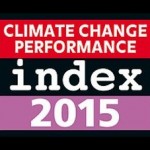
Lima, Peru – The longstanding divide in UN climate talks over fairness can be bridged by focusing on climate action that strengthens the capabilities of the least well-off and most vulnerable people, according to a new report released on December 8 by the World Resources Institute (WRI).
The report, “Building Climate Equity: Creating a New Approach from the Ground Up”, draws on 30 real-world examples from developing and developed countries that demonstrate how this “capabilities approach” can achieve ambitious low-carbon and adaptation goals while simultaneously enhancing access to decent livelihoods, healthy food, quality housing, physical safety and other capabilities for individuals, communities and nations.
The report’s emphasis on capabilities can also help advance discussions in the UN climate negotiations about the principle of “common but differentiated responsibilities and respective capabilities”.
“This report shows that well-designed climate policies can improve the lives of people and strengthen communities,” said David Waskow, Director, International Climate Initiative, World Resources Institute. “By focusing on the capabilities of countries and communities, we can make progress on the equity concerns that have impeded climate negotiations for decades.”
“Responsibility for emissions are a fundamental part of the UN climate talks – but so is the responsibility to improve people’s lives,” Waskow continued. “Discussion here in Lima should focus on how climate action and equity can be mutually supportive. This approach will help reach global consensus on a fair and ambitious climate agreement.”
The authors find that climate negotiators should use this capabilities approach to equity to inform the 2015 climate agreement by:
- Incorporating national capabilities considerations into the formation and evaluation of countries post-2020 climate pledges, known as intended nationally determined contributions (INDCs), including human development, economic capacity, resilience to climate impacts and governance capacity and social support structures; and
- Ensure that all core elements of the 2015 agreement (i.e., adaptation, mitigation, finance, accounting, etc.) achieve equity and build capabilities of the least well-off and most vulnerable.
The report’s case studies showcase countries or communities successfully advancing low-carbon development that maintains or enhances capabilities, including:
- An innovative financing arrangement in India that expanded access to energy in remote, rural areas by reducing upfront costs for renewable energies. By implementing innovative, tailored loan arrangements for communities, reliance on fossil fuels was reduced, energy access has increased and new economic opportunities for female entrepreneurs were unlocked.
- Efforts to phase out fossil fuels in Indonesia have allowed funds to be diverted to social improvement programs through cash transfers, increased access to healthcare and reduced school fees. Modelling suggests that the complete removal of subsidies could dramatically increase GDP and reduce poverty.
- Wide-scale reforestation has been achieved in Niger by strengthening community land and forest rights. These policies have led to sequestration of at least 30 million tonnes of carbon over the past 30 years and an estimated US $ 900 million in annual economic benefits.
- The use of climate vulnerability indexes and mapping has informed local and national adaptation planning in communities in the southeast United States, Australia and Nepal. These processes have effectively aligned planning processes with specific climate risks and needs of the communities and their residents.
Building Climate Equity also provides new recommendations for international institutions and policymakers outside of the UN climate negotiations process to enhance capabilities that drive climate action, including:
- Provide upfront investment for low-carbon pathways and adaptation efforts that are designed to enhance equity and build capabilities, including for equitably designed energy policies;
- Provide technical assistance, capacity building, and guidance to enable countries to formulate and implement the types of equitable climate policies highlighted in the report;
- Ensure that finance is accessible to those who need it, including non-traditional-banking populations, to undertake innovative and locally appropriate climate action;
- Support the implementation of “before and after” vulnerability assessments and evaluations to identify impacts of climate action on the capabilities of affected groups; and
- Enable participatory planning and stakeholder engagement in the development of climate policies across all sectors.
Check the following link to read/download the Full Report:
http://www.wri.org/publication/building-climate-equity
Source: WRI.















